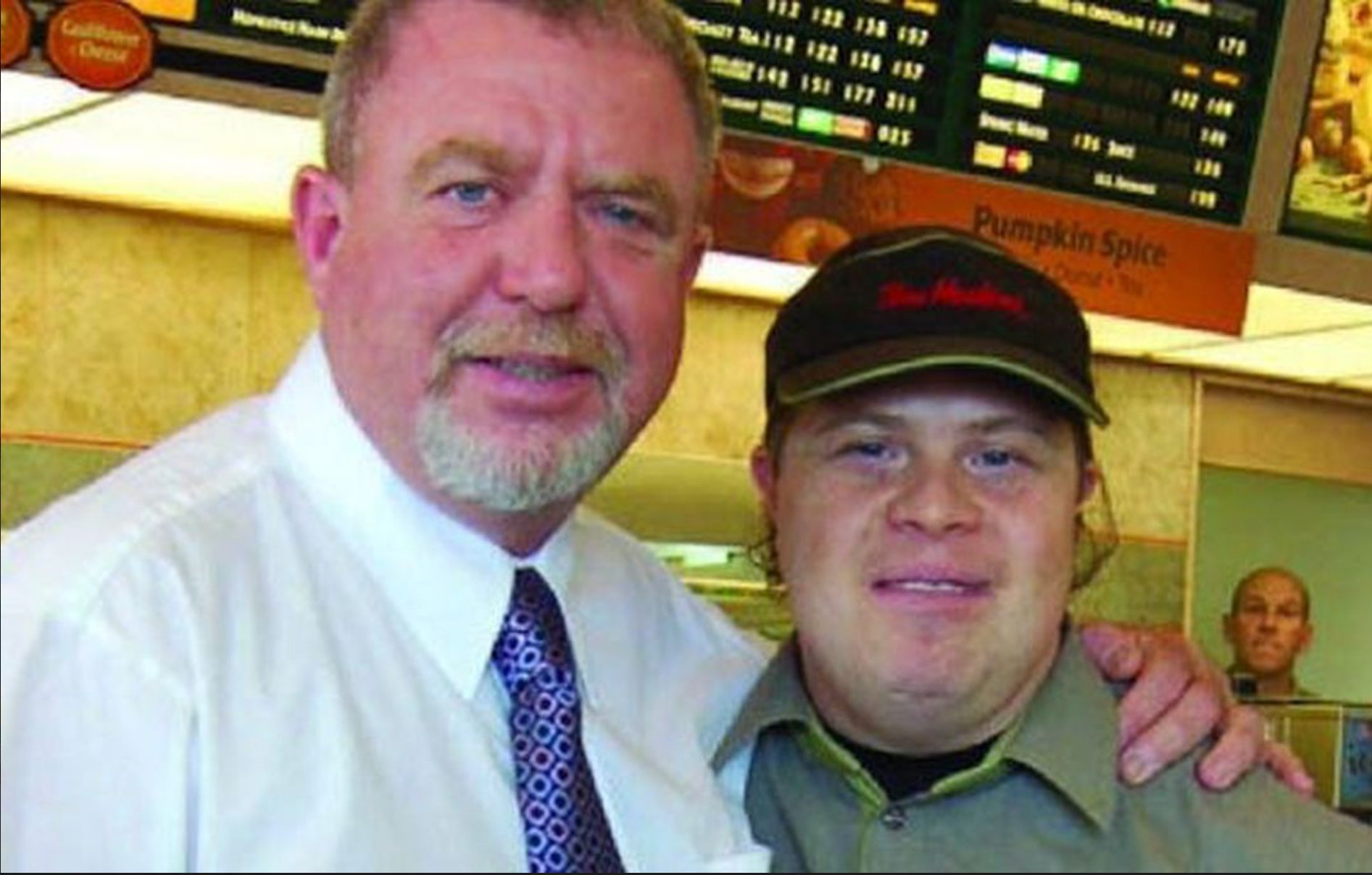Mark’s business is successful because it’s inclusive.
We are celebrating 75 Years of Belonging by hearing from different people connected to Community Living Toronto (CLTO). One of those people is Mark, who is the Interim President and CEO of Abilities Centre Durham. Here is his story of belonging.
Hello, my name is Mark.
I believe in breaking down barriers. More specifically, I believe in dispelling myths and misconceptions about people with disabilities.
Especially when it comes to employment.
For Mark, “belonging” is building workplaces where people with disabilities can thrive.

In the early 1990s, I had a new and growing business as a Tim Hortons franchise owner. Our location in Scarborough had a large dining room, and we were having a hard time keeping up with clearing dishes, wiping tables… things that help a restaurant run smoothly. So, I basically put an ad on the door that said “dining room attendant needed.”
At the time, I hadn’t had much experience with people with intellectual disabilities. But that changed when a man with an intellectual disability came in and said he wanted that dining room attendant job.
Although I have a disability myself – I have been deaf since birth – I didn’t know what to expect from working with someone with an intellectual disability. Even so, I hired the man.
And then I called Community Living Toronto.
Beginning the journey of inclusion and creating a culture of belonging was something I felt was important. That included providing support and training for our employees with disabilities and accessibility training for the whole staff team.
It also meant making some adjustments. For example, we had a rule in our stores that employees did not wear their uniforms while travelling to work. But we made an exception for this man, because he was just so proud of his Tim Hortons uniform. He wanted to wear it on the bus and show everyone where he worked.
“There is a clear business case for inclusion.”
Over time, he became our best employee and his presence brought about an overall increase in employee morale. And that led us to recognize there is a clear business case for inclusion. What did that look like? Well, once we had support and training in place for accommodating people with disabilities, it made our team more diverse and resulted in overall lower absenteeism and employee turnover, higher innovation, and greater safety records.
Our success onboarding new employees with intellectual disabilities was directly related to our excellent relationship with CLTO. We couldn’t have done it without them.
Since 1971, CLTO’s Employment Services have supported employers to hire hard-working, dependable, long-term employees. Our Employment Services staff can provide on the job training to ensure employer satisfaction; offer orientation, basic training, and ongoing support for both employer and employee; and provide effective working solutions to a variety of employment demands in a diverse range of fields.
Over my 25 years operating Tim Hortons restaurants in and around Toronto, we employed more than 250 workers with disabilities in all areas of the business, including management. I believe we hired workers with every type of disability and all types of abilities.
These workers were the reason our business was so successful.
The most important element of our relationship with CLTO was the ongoing support of both the worker with an intellectual disability and the support of our management team. When we ran into difficulties or barriers, we were able to connect with CLTO for support and expertise. Because of this connection, many workers thrived with support from CLTO so they could continue to develop and provide value to the workplace – a real win – win!
Community Living Toronto changes lives and changes our communities.
People with intellectual disabilities want to work. They are the same as everyone else, with dreams and hopes, and a need to contribute. The only reason we have such low participation rates in the labour force for Canadians with disabilities is the resistance and negative attitudes of our employers. Community Living Toronto works to break down those barriers, disrupt ableist assumptions, and prevent discrimination.
Bravo to everyone involved with CLTO as you celebrate 75 Years of Belonging. Over this time, there has been a massive change in attitudes towards people with intellectual disabilities. This progress is due to the efforts of many organizations, but CLTO stands out as a leader over the past seven decades.
Show your support for Community Living Toronto and help to create the next 75 Years of Belonging! Add your name now if you agree that people with an intellectual disability belong in our community.
* By adding your name, you also agree to receive occasional emails from CLTO. You can unsubscribe at any time.
